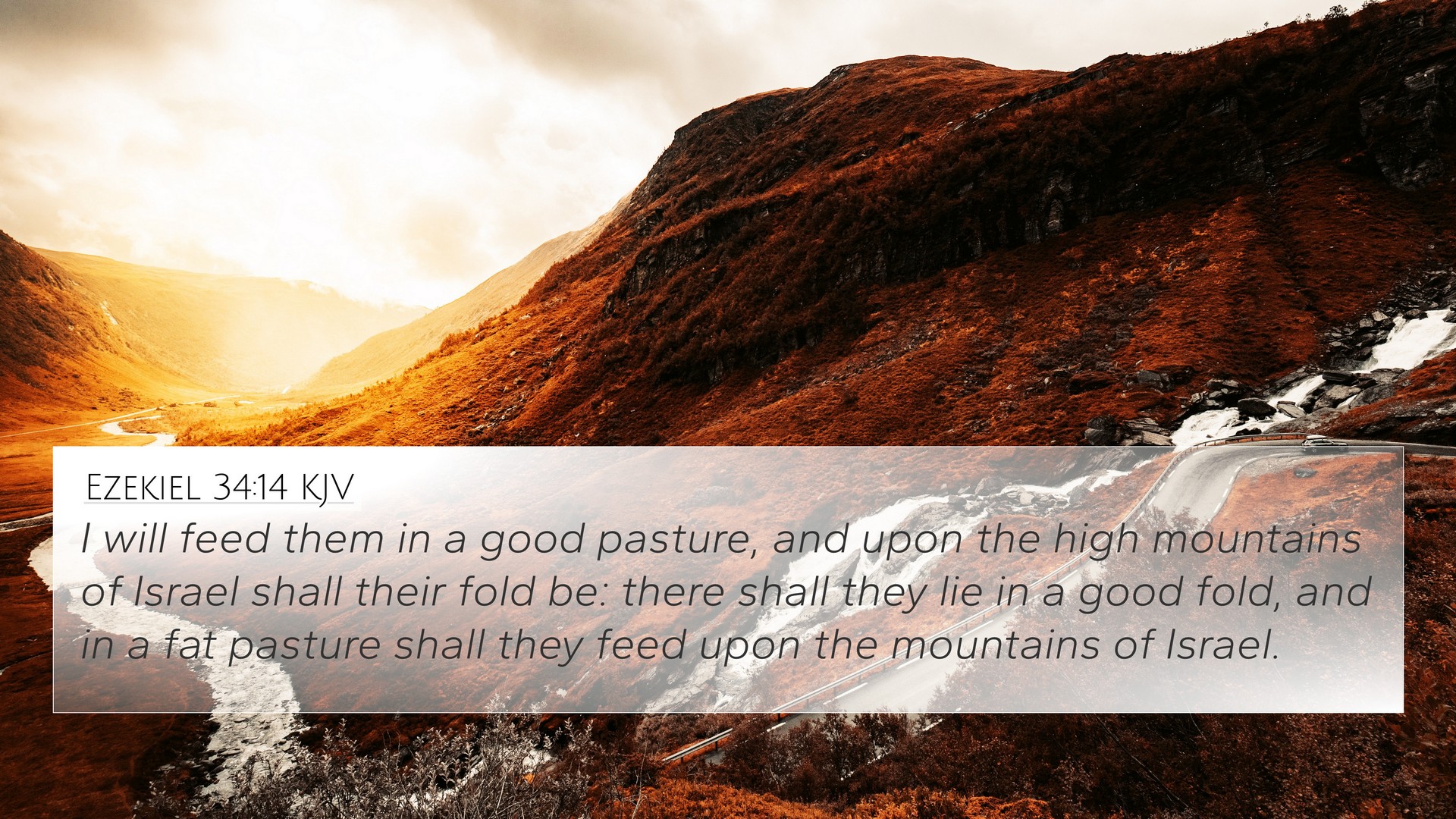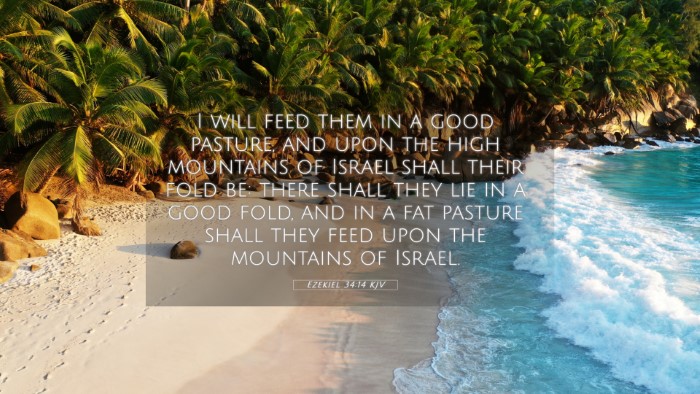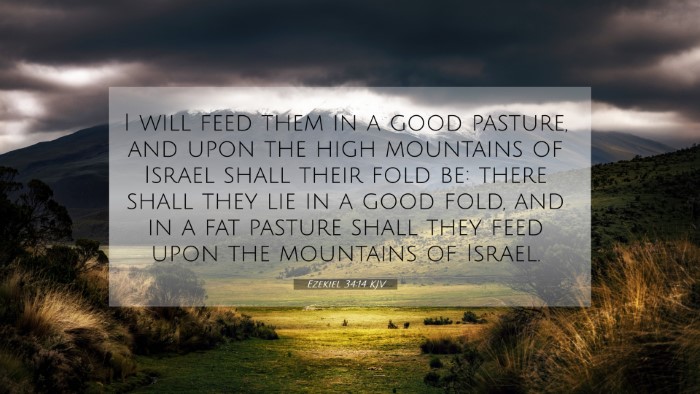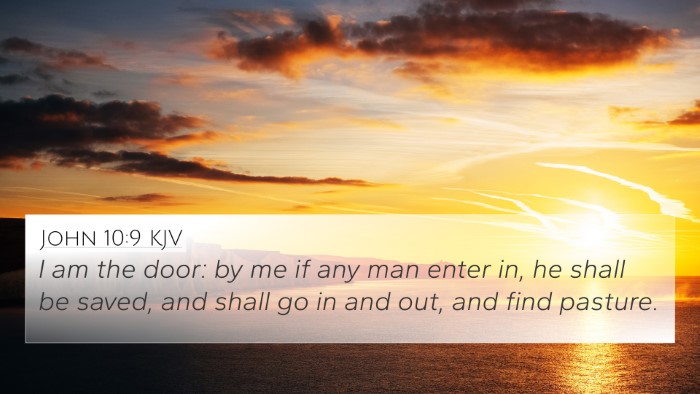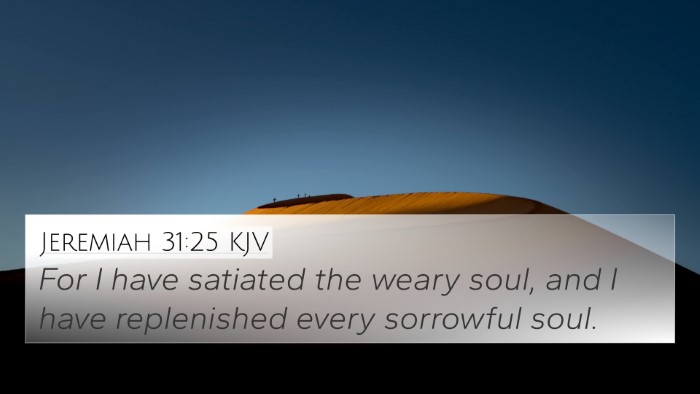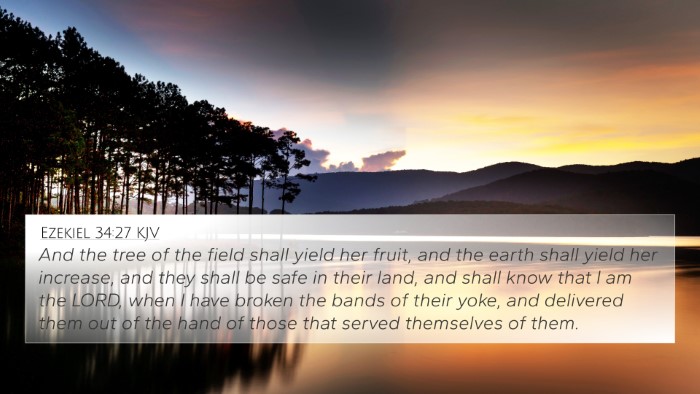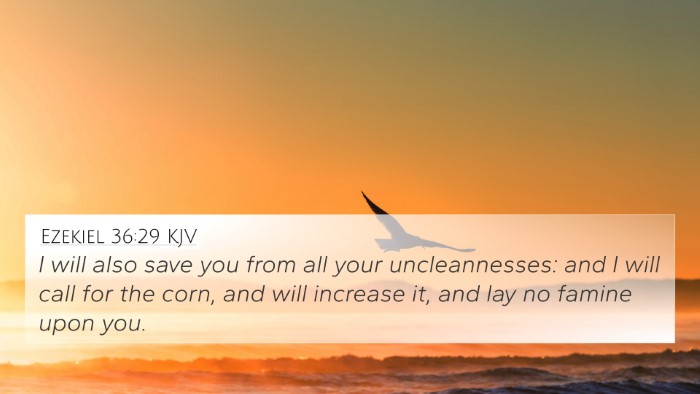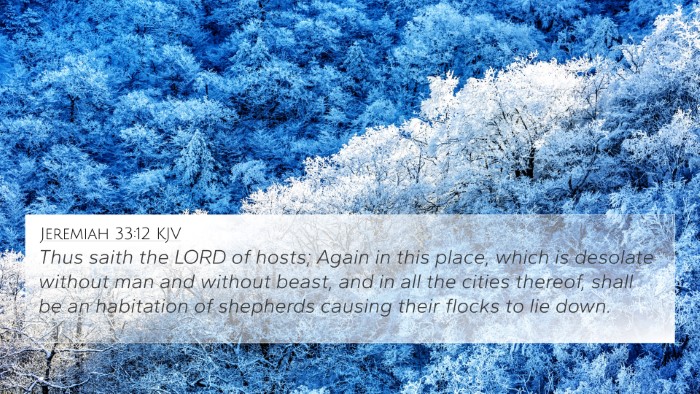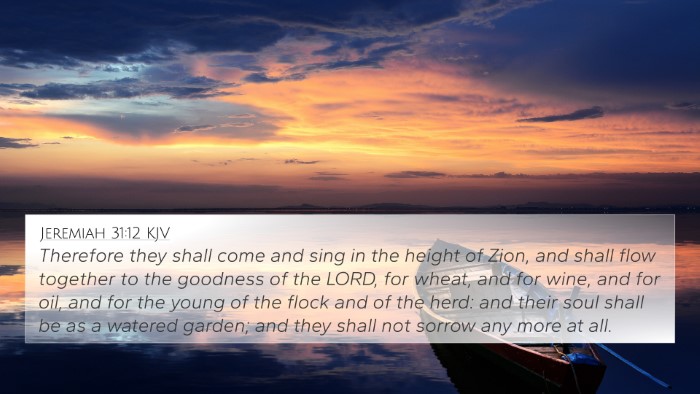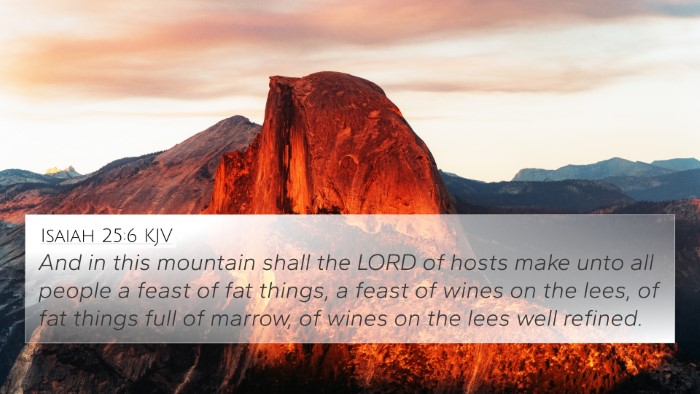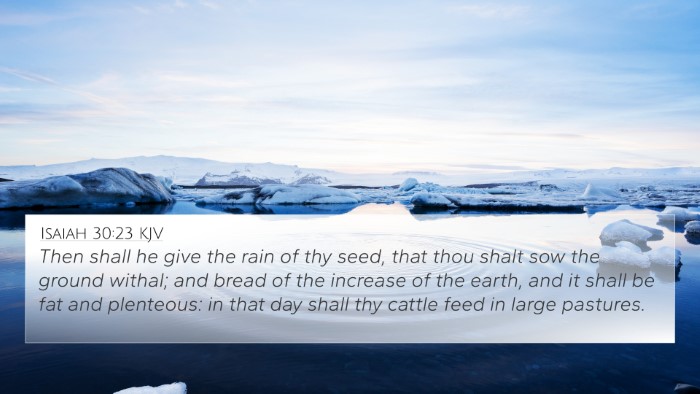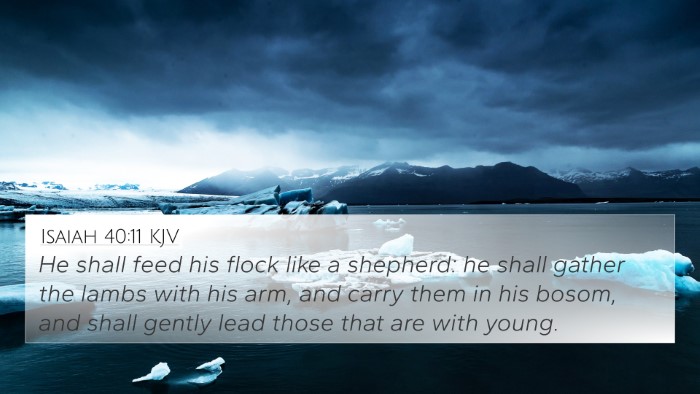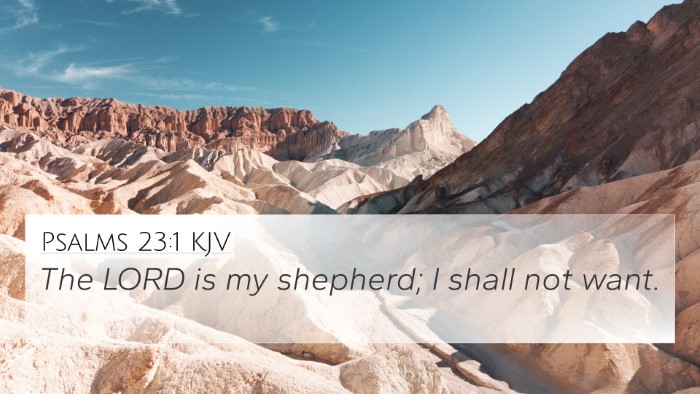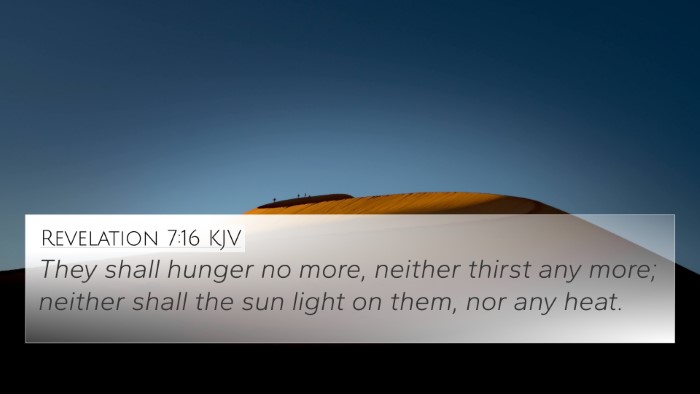Ezekiel 34:14 Explained: Insights and Interpretations
Ezekiel 34:14 states: “I will feed them in a good pasture, and upon the high mountains of Israel shall their fold be: there shall they lie in a good fold, and in a fat pasture shall they feed upon the mountains of Israel.” This verse presents God’s promise of provision and care for His people, depicted as sheep under the care of a shepherd.
Meaning and Significance
The significance of this verse is multifaceted, reflecting both spiritual nourishment and physical well-being. Here we summarize the interpretations drawn from prominent public domain commentaries:
- Matthew Henry: Henry emphasizes the imagery of God as a shepherd. He notes that the “good pasture” represents not only physical sustenance but also spiritual nourishment. The mountains symbolize a place of safety and abundance, taking away the fears of the sheep who trust in their shepherd.
- Albert Barnes: Barnes highlights the assurance that God will provide His people with abundance and security. He connects this verse to the covenantal relationship where God assures Israel of His commitments, urging them to trust in His provision.
- Adam Clarke: Clarke adds depth by detailing the historical context of Israel's struggles. He views this passage as a prophetic assurance to a people who have endured desolation, reminded that God’s care will restore them and place them in a bountiful land.
Thematic Connections
This verse reflects broad themes that resonate throughout the Bible, particularly concerning God's protection and provision. Here are some related themes:
- Shepherd Imagery: The motif of God as a shepherd recurs in Psalms (e.g., Psalm 23:1) and the New Testament (John 10:11), illustrating God's care for His people.
- Promise of Restoration: God’s assurances in Ezekiel echo throughout the Scriptures, offering hope for restoration (see Isaiah 40:11, Jer. 31:10).
- Spiritual Nourishment: The parallel of physical and spiritual sustenance is echoed in passages like Matthew 4:4, where Jesus notes the importance of spiritual feeding through God’s Word.
Cross-References
Several passages directly relate to Ezekiel 34:14, creating a network of connections that enhance understanding:
- Psalm 23:1 - "The Lord is my shepherd; I shall not want." (Affirms the shepherd imagery)
- John 10:14 - "I am the good shepherd; and know my sheep, and am known of mine." (Jesus’ identification with the shepherd role)
- Isaiah 40:11 - "He will feed his flock like a shepherd." (God's nurturing role)
- Jeremiah 31:10 - "He that scattered Israel will gather him." (The theme of gathering and restoring)
- Luke 12:22-24 - "Consider the ravens: for they neither sow nor reap; which neither have storehouse nor barn; and God feedeth them." (God's provision in nature)
- Revelation 7:17 - "For the Lamb... shall lead them unto living fountains of waters." (Fulfillment of the shepherd's role in eternity)
- Ephesians 5:29 - "For no man ever yet hated his own flesh; but nourisheth and cherisheth it." (A teaching on care that reflects shepherding)
Applying the Message of Ezekiel 34:14
This verse extends beyond its immediate context and invites believers to reflect on their relationship with God:
- Trust in God’s Provision: Believers are reminded that, like sheep, they can place their trust in God who provides abundantly.
- Encouragement in Times of Despair: For those feeling lost or vulnerable, this verse provides hope and assurance of God’s care.
- Call to Pastoral Care: Church leaders are inspired to lead and care for their congregations in a manner that reflects God’s own nurturing tendencies.
Conclusion
Ezekiel 34:14 reassures us of God's attentive care and the promise of spiritual and physical sustenance. Through the reflections of various commentators and the intricate web of cross-references, it is clear that God’s provision, protection, and promise of restoration to His people are central themes that permeate the entirety of Scripture.
By engaging with cross-referencing Bible study methods, one can explore these connections further, getting a richer understanding of the narrative of God’s love and care from Genesis through Revelation.
Recommended Tools for Bible Cross-Referencing
If you wish to delve deeper into the connections and themes presented in the Scriptures, consider utilizing:
- Bible concordance for word searches
- Bible cross-reference guides for thematic studies
- Expository commentaries for detailed insights
- Online Bible study resources for interactive engagement
Exploring Further Connections
To enhance your study, consider asking:
- What verses are related to Ezekiel 34:14?
- How do passages about shepherd imagery connect across the Bible?
- What themes of restoration are present in both the Old and New Testament?
